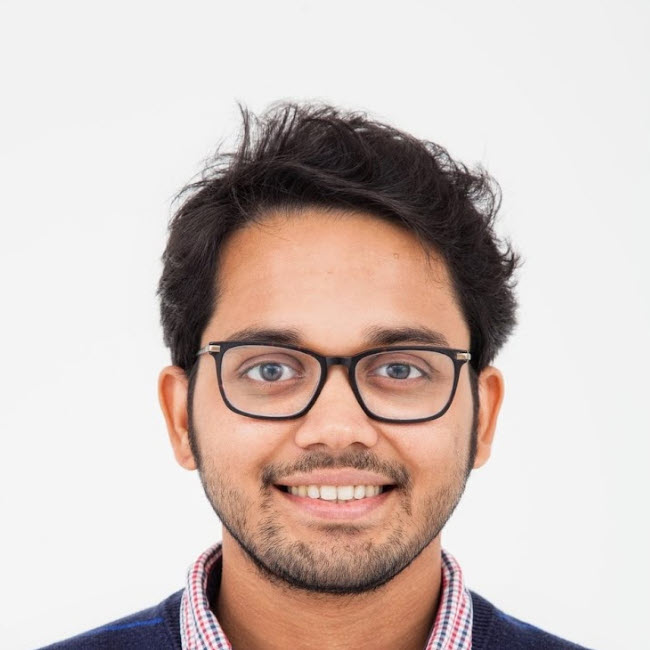Sujoy Bhore
Eminent Speaker
Short CV: Sujoy Bhore is a faculty member in the Department of Computer Science Engineering at the Indian Institute of Technology Bombay and a visiting fellow in the Department of Mathematics at the London School of Economics. He previously held postdoctoral research positions at the Faculty of Informatics, TU Vienna, and the Department of Computer Science, ULB Brussels. He received his Ph.D. from the Department of Computer Science, Faculty of Natural Sciences, Ben-Gurion University, Israel. Sujoy has been the recipient of the Krietman doctoral fellowship, US-Israel BSF fellowship, London Mathematical Society fellowship, and Young Faculty Award at IIT Bombay. His current research interests include Discrete Computational Geometry, Algorithms, Data Structures, and Theoretical Machine Learning.
Title of Talk 1: Sketching and Uncertainty: Through the Geometric Lens
Synopsis: In various applications, such as machine learning, robotics, and social choice theory, the input data, often represented geometrically as points in a finite metric space, can be massive in size. Efficient processing and representation of such large datasets is crucial. Sketching is a fundamental technique used to compress a large dataset into a smaller dataset while approximately preserving key properties. Among the various sketching mechanisms, two of the most important and well-studied sketching structures are spanners and tree covers. In the first part of this talk, I will discuss recent advances in geometric sketching methods.
Traditional algorithmic models assume complete knowledge of the input in advance; however, this assumption often fails in uncertain environments, where inputs evolve over time. In such cases, algorithms must not only compute efficiently at each stage but also maintain high-quality solutions as the input undergoes updates. In the second part of the talk, I will explore the uncertain aspects of geometric sketching and discuss strategies for adapting algorithms to handle these challenges effectively.
Title of Talk 2: Geometry and Graphs: A Tale of Two Worlds
Synopsis: Data visualization and massive data handling are some of the primary concerns of computer scientists. However, most big data sets are relational, containing a set of objects and relations between these objects, which are commonly modeled as graphs. Many important real-life problems can be modeled as combinatorial optimization problems on graphs. In the first part of my talk, I will focus on some classical combinatorial optimization problems, e.g., TSP, spanning trees, Erdős-Szekeres-type problems, etc.
However, we live in a dynamic world where our everyday life involves several decision-making processes that are based on data changing constantly over time. Algorithms are at the core of computer science. They define the underlying computational processes of every complex system running in today's digital world. Therefore, a natural challenge for algorithms is to not only do efficient computation at a particular point but also to maintain a good quality solution throughout. In the second part of my talk, I will focus on online & dynamic geometric optimization problems, e.g., independent sets, hitting set, vertex cover, matching, etc.
Title of Talk 3: Computing: Structures, Combinations, Algorithms.
Synopsis: Computing is fundamentally driven by the interplay of structures, combinations, and algorithms. The study of computational structures, ranging from graphs and networks to algebraic and geometric frameworks, provides the foundation for efficient algorithmic design. Combinatorial methods play a pivotal role in analyzing their complexity, which in turn helps with resource allocation, and allows us to solve a wide range of discrete and continuous problems across diverse domains. On the other hand, algorithmic advancements refine the computational feasibility of problems, leveraging structural properties to achieve optimal solutions. In this talk, we will explore the deep interconnections between combinatorial techniques, algorithmic efficiency, and computational structures, offering insights into their theoretical underpinnings and practical applications. We’ll also discuss how combining these principles can lead to new perspectives on tackling real-world computational challenges.

Sujoy Bhore
Qualifications: Ph.D.
Title: Assistant Professor
Affiliation: Indian Institute of Technology Bombay, Mumbai.
Contact Details:
Email: [email protected]
LinkedIn: https://www.linkedin.com/in/sujoy-bhore-8a104546/
Twitter/X:
Facebook:
Instagram: